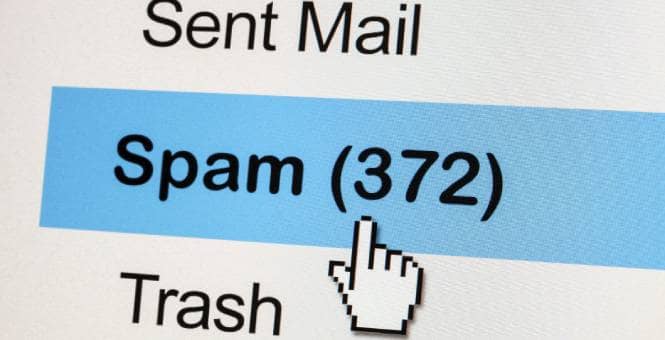

It is unlawful for a person during business hours to send or initiate an unsolicited commercial email advertisement to a recipient, without their consent, or the establishment of a pre existing business relationship, to promote a good or service; by misrepresenting a material fact in the subject of the email or in the body of the email; and or does so to induce the receipt to accept the promoted good or service.
What is the definition of an email advertisement under Business and Professions Code 17529.5(A) BPC?
A commercial email is an electronic mail message created for the purpose of advertising that promotes a lease, sale, rental, gift offer, disposition of property, transaction of any good or service; or extension of credit.
What is the definition of unsolicited as defined under Business and Professions Code 17529.5(A) BPC?
Unsolicited means lacking a pre existing business relationship or without inquiry or consent.
Who can seek a criminal conviction against an accused under Business and Professions Code 17529.5(A) BPC?
The recipient of the unsolicited email, the Attorney General, or an email service provider providing the application, platform, or user interface from which the violation occurred.
That is the mental state required for a violation of Business and Professions Code 17529.5(A) BPC?
There is no mental state required for a violation of Business and Professions Code 17529.5(A) BPC. As such, the statute is a strict liability offense, making it a general intent crime. This requires the completion of the act itself, with no indication as to how the party initiating the conduct thought or felt at the time of conduct. Therefore, the State must prove beyond a reasonable doubt that the accused simply: in the course of business, sent an unsolicited commercial email advertisement to a recipient in its course of business who; it had no sent consent to receive nor preexisting or current business relationship established to; promote a lease, sale, rental, gift offer, disposition of property, good, service, or extension of credit; and did so by a misrepresentation of a material fact in the subject of the email or the emails body; and is aware of the natural and probable consequences of all circumstances that can result.
Are there any exceptions to a violation of Business and Professions Code 17529.5(A) BPC?
Yes. There are quite a few. First, if there is a preexisting relationship that indicates a commercial relationship. Second, even if the subject line of the email is mildly deceptive, but the entirety of the email is truthful and is used by an advertiser it is not considered a material misrepresentation.
Are opt-in opt-out provisions required in commercial emails under Business and Professions Code 17529.5(A) BPC?
Yes, but the provisions must be unambiguous in the email as options to continue or disengage from the sender of the email. An opt-out provision is one that unequivocally communicates to the recipient the ability to discontinue receiving further commercial email advertisements by calling a toll-free number or sending an unsubscribe to email option. An opt-in provision is one that unequivocally communicates to the recipient the ability to continue to receive additional commercial email advertisements by calling a toll-free number or sending and subscribe to email option
Is there a liquidating damages provision under Business and Professions Code 17529.5 BPC?
Yes. Business and Professions Code 17529.5 BPC, provides the Attorney General, recipient of the email or an email service provider to seek liquidating damages against anyone who violations Business and Professions Code 17529.5 BPC in the amount of $1,000 dollars per violation for a maximum of $1,000,000 dollars against the email sender.
Are there any exceptions to remitter provisions toward the liquidating damages under Business and Professions Code 17529.5 BPC?
Yes. If the accused can show that there has been established business practices and policies regarding anti-spam emails and deceptive trade practices, then the Court will reduce any fines and fees per incident between $100 to $100,000 dollars in favor of the email sender.
Is there cumulative prohibition remedy provision under Business and Profession Code 17529.5 BPC?
Yes. Under Business and Professions Code 17538.45 BPC, an email service provider, in lieu of seeking criminal liability against the accused, if the email service provider has enacted an established policy against spam emails and deceptive practices, and the accused had actual or constructive notice of this policy, can seek additional liquidating damages amounting to $1,000 dollars per violation to a maximum of $1,000,000 dollars against the accused email sender for each incident.
Under Business and Professions Code 17529.8 BPC, a victim of a violation of Business and Professions Code 17529.5 BPC, can seek only liquidating damages against the accused in the amounting to $1,000 dollars per violation to a maximum of $1,000,000 dollars for each incident. But if either Business and Professions Code 17538.45 BPC or Business and Professions Code 17529.5 BPC is used, then Business and Professions Code 17529.5 BPC cannot be sought to seek a criminal conviction.
A violation of Business and Professions Code 17529.5(A) BPC is charged as a misdemeanor. Penalties include confinement not exceeding 6 months in jail, with fines not exceeding $1,000 dollars.
What is an example of a violation of Business and Professions Code 17529.5(A) BPC?
If you are charged with a violation of Business and Professions Code 17529.5 BPC, call Law Mart today.
Call LAW MART for a FREE Case Review: 310-894-6440

Copyright © 2024 law – Powered by AmelCS